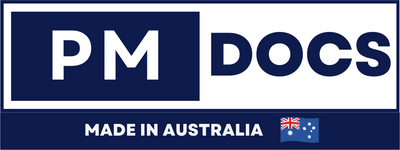ISO 27001 Training & Lead Auditor Courses in Australia
Mastering Information Security: Your Essential Guide To ISO 27001 Training & Lead Auditor Courses In Australia
In today's hyper-connected world, information is the lifeblood of every organisation. From customer data and intellectual property to operational secrets and financial records, safeguarding this digital treasure isn't just a best practice – it's a fundamental imperative. Data breaches are increasingly common, costly, and reputation-damaging, making robust information security no longer optional, but essential for survival and growth.

This is where ISO 27001, the international standard for Information Security Management Systems (ISMS), steps in. It provides a systematic approach to managing sensitive company information so that it remains secure. For professionals and organisations in Australia looking to build resilience, ensure compliance, and demonstrate commitment to security, ISO 27001 training and, specifically, Lead Auditor certification, are invaluable assets.
This comprehensive guide will explore the landscape of ISO 27001 training in Australia, with a particular focus on the critical role and benefits of Lead Auditor courses.
What Is ISO 27001 And Why Does It Matter?
ISO 27001 is a globally recognised standard that sets out the requirements for establishing, implementing, maintaining, and continually improving an Information Security Management System (ISMS). An ISMS is a comprehensive framework of policies, procedures, and controls that helps organisations manage their information security risks.
Key Benefits of Implementing ISO 27001:
-
Enhanced Data Protection: Systematically identifies and mitigates information security risks.
-
Regulatory Compliance: Helps meet legal and regulatory requirements (e.g., Australian Privacy Act, GDPR, critical infrastructure regulations).
-
Increased Trust & Reputation: Demonstrates a commitment to information security, building confidence with customers, partners, and stakeholders.
-
Competitive Advantage: Often a prerequisite for significant contracts, especially in government and large enterprise sectors.
-
Improved Organisational Resilience: Reduces the likelihood and impact of security incidents.
- Structured Approach: Provides a clear, auditable framework for managing information security.
Who Needs ISO 27001 Training?
ISO 27001 isn't just for IT professionals. Its pervasive nature means that various roles within an organisation can benefit significantly from understanding its principles and application.
-
IT Managers & Directors: To oversee the technical implementation and maintenance of the ISMS.
-
Information Security Officers (CISOs/ISOs): To lead the design, implementation, and ongoing management of the ISMS.
-
Compliance Officers: To ensure the organisation meets regulatory and legal requirements related to data protection.
-
Risk Managers: To integrate information security risk management into the broader enterprise risk framework.
-
Internal Auditors: To conduct internal audits of the ISMS, ensuring its effectiveness and compliance.
-
Project Managers: For managing projects involving sensitive information or requiring ISO 27001 compliance.
-
Human Resources Managers: To manage employee security awareness and related policies.
-
Senior Leadership & Board Members: To understand their responsibilities and the strategic importance of information security.
- Anyone Handling Sensitive Information: General staff awareness training is crucial for the entire workforce.
Navigating The ISO 27001 Training Landscape In Australia
Australia offers a robust selection of training courses across various levels, catering to different professional needs and career stages. These courses are typically offered by accredited training organisations, ensuring that the content and instructors meet globally recognised standards.
Here's an overview of the common training paths available:
Table 1: ISO 27001 Training Path Overview
| Course Type | Target Audience | Key Learning Outcomes Table 2: Key Modules in an ISO 27001 Lead Auditor Course
| Module | Description | Importance for Lead Auditors |
|---|---|---|
| Introduction to ISMS & ISO 27001 | Understanding the purpose, structure, and benefits of ISO 27001, its relationship with other ISO standards, and crucial terminology. | Establishes a foundational understanding for effective auditing. |
| Auditing Principles & Management | Covers ISO 19011 guidelines for auditing management systems, audit planning, execution, reporting, and follow-up. Includes auditor responsibilities and ethics. | Crucial for conducting professional, systematic, and impartial audits. |
| Planning an ISO 27001 Audit | How to define audit objectives, scope, criteria; develop audit plans; select audit teams; and conduct document reviews. | Ensures audits are well-structured, efficient, and cover all necessary aspects of the ISMS. |
| Conducting the Audit | Techniques for gathering objective evidence (interviews, observation, sampling, document review); managing audit interviews; identifying non-conformities; and effective communication. | Develops the practical skills needed to uncover evidence and make informed judgements about ISMS conformity. |
| Audit Reporting & Follow-up | Structure and content of audit reports, presenting findings, grading non-conformities, and verifying corrective actions. | Essential for clearly communicating audit results and ensuring identified issues are addressed effectively. |
| ISMS Controls (Annex A) | Detailed review of the 114 controls in Annex A of ISO 27001, understanding their purpose and implementation requirements. | Allows auditors to assess the appropriateness and effectiveness of an organisation's chosen controls against the standard's requirements. |
| Certification Process | Understanding the stages of an external certification audit (Stage 1 & Stage 2), accreditation bodies, and the role of the certification body. | Provides context for external audits and helps internal auditors prepare organisations for successful certification. |
Why Become An ISO 27001 Lead Auditor?
The ISO 27001 Lead Auditor course is the pinnacle of ISO 27001 training for those seeking to validate and improve Information Security Management Systems. Typically a 5-day intensive program, this certification empowers individuals to:
-
Lead and Manage Audits: Gain the expertise to plan, conduct, report, and follow-up on ISO 27001 audits, whether as an internal auditor or a third-party certifier.
-
Assess ISMS Effectiveness: Develop the skills to evaluate an organisation’s ISMS against the requirements of ISO 27001, identifying areas of strength and weakness.
-
Drive Continual Improvement: Provide valuable insights and recommendations that help organisations strengthen their information security posture.
-
Enhance Career Prospects: This globally recognised qualification is highly sought after, opening doors to senior roles in information security, risk management, and compliance across various industries.
- Ensure Compliance: Help organisations meet their legal, regulatory, and contractual obligations related to information security.
Lead Auditor Accreditation:
In Australia, most reputable Lead Auditor courses are accredited by global bodies like Exemplar Global (formerly RABQSA) or IRCA (International Register of Certificated Auditors). Achieving certification through an accredited course ensures your qualification is recognised worldwide and adheres to stringent competence standards.
Why Choose Australia for Your ISO 27001 Training?
Australia's advanced economy, robust regulatory environment, and commitment to global standards make it an excellent location for pursuing ISO 27001 training.
-
High-Quality Education: Australian training providers are known for their high standards, experienced instructors, and practical, real-world case studies.
-
Accredited Providers: Many providers offer courses accredited by Exemplar Global or IRCA, ensuring the validity and international recognition of your certification.
-
Experienced Instructors: Trainers often bring extensive industry experience as lead auditors or implementers, providing invaluable insights beyond the textbook.
-
Thriving Digital Economy: Australia's growing digital economy means a strong demand for skilled information security professionals, offering excellent career opportunities post-certification.
- Diverse Learning Formats: Options include in-person classroom training, live online virtual classes, and blended learning approaches to suit different schedules and preferences.
Key Considerations When Choosing A Course
Selecting the right ISO 27001 training course, especially for a Lead Auditor certification, is a crucial decision for your career. Here are the key factors to consider:
-
Accreditation: Ensure the course is accredited by a recognised body like Exemplar Global or IRCA. This validates the quality and global recognition of your certification.
-
Instructor Experience: Look for trainers with hands-on experience as certified lead auditors or implementers. Their practical insights are invaluable.
-
Course Content & Syllabus: Review the syllabus to ensure it comprehensively covers all aspects of ISO 27001 and the auditing process (as per ISO 19011).
-
Learning Format: Decide whether in-person, live online, or self-paced blended learning best suits your learning style and schedule.
-
Provider Reputation & Reviews: Check testimonials and reviews from previous participants to gauge the quality of the training and support.
-
Included Materials & Support: Does the course provide comprehensive materials, access to standards, and ongoing support?
-
Post-Course Support: Some providers offer assistance with registration as a certified auditor or career guidance.
- Cost vs. Value: While cost is a factor, prioritise the value of the certification and the quality of the training over simply the cheapest option.
Conclusion
In an era defined by data and digital transformation, protecting information assets is paramount. ISO 27001 offers the gold standard for information security management, and comprehensive training, particularly for Lead Auditors, is the pathway to mastering its principles and application.
For professionals and organisations in Australia, investing in ISO 27001 training is an investment in future security, compliance, and competitive advantage. By choosing an accredited course from a reputable provider, you equip yourself with the knowledge and skills to not only safeguard vital information but also to drive continuous improvement and foster a culture of security within any organisation.
Take the next step in your information security career or elevate your organisation's posture. Explore the ISO 27001 training and Lead Auditor courses available in Australia today and become a guardian of digital trust.




